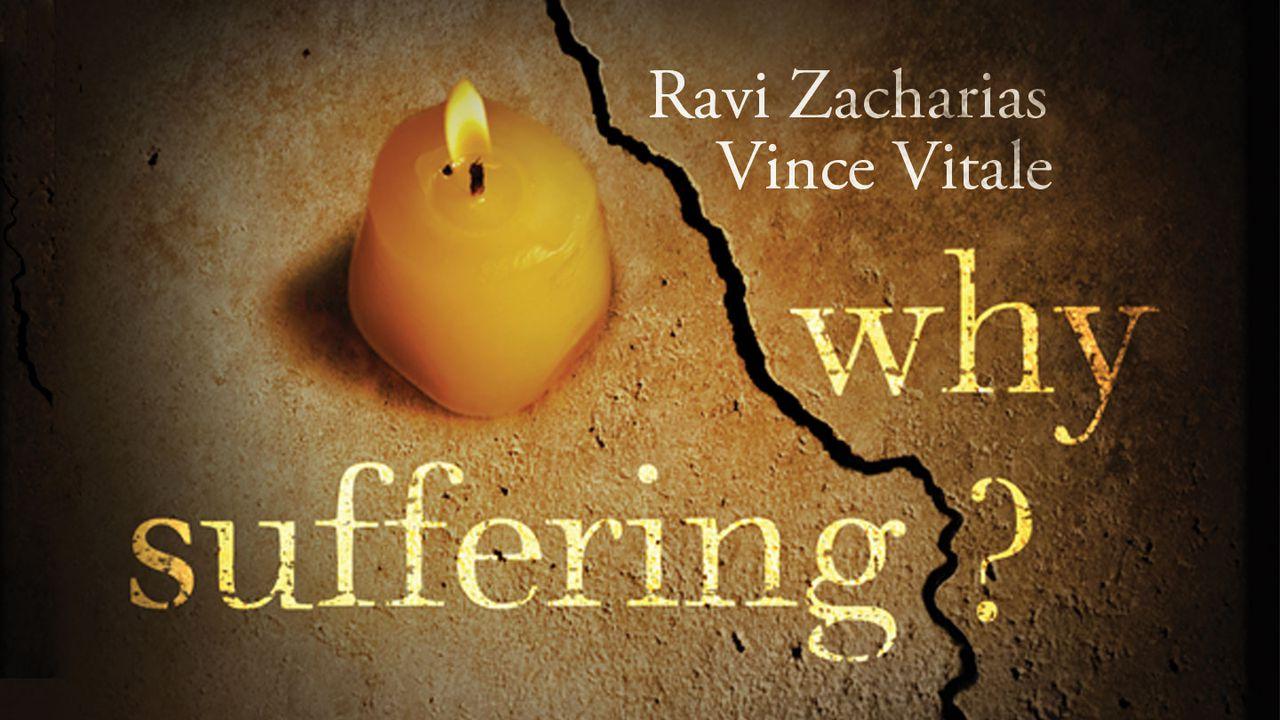Why Suffering預覽

Hope and Redemption
What were your childhood dreams? What were your expectations for your life when you were a child? What were they five years ago? What are they today? How have they changed?
Many people start out with extraordinary dreams, but by the time they become adults they have ceased to dream like children. We learn to set our expectations low. We don’t want to be dreamers, hopeless romantics, naïve idealists. We need to be honest about the fact that the world outside isn’t going to be kind to us.
Perhaps our hope should come from what’s inside of us. But if we’re honest about what’s in our hearts, we have to admit that we have as much to be ashamed of as we do to be proud of. Jesus was right when He said, “What comes out of a person is what defiles them. For it is from within, out of a person’s heart, that evil thoughts come” (Mark 7:20–21).
So much of our suffering finds its root not only because we’re living in a world that often seems against us, but because we’re not the people we know deep down we were created to be. Life is not headed for happiness, not only because of the harsh world outside, but also—if we’re honest with ourselves—because of what’s inside.
And so what happens? We stop having great expectations for life. We stop dreaming like we did as children; we expect less, hope for less, settle for less.
Jesus Christ is in the business of redeeming expectations! He’s in the business of reviving hope. In their magnitude and beauty, His expectations for our lives have much more in common with our childhood idealism than with our adult realism; they look much more like what we once dreamed of than like what we now settle for.
And here’s why: Because when you choose to live with Christ, He begins to transform you from the inside out. He begins to transform what’s within, and that begins to transform our experience of what’s without.
When you invite God into your life, the Bible says that His Spirit comes to live inside of you (Rom. 8:9–11)—a Spirit so powerful as to have raised Jesus from the dead. And it’s just remarkable to experience the Holy Spirit living inside of you and empowering you to be more and more the person that you long to be and that you were created to be.
Becoming a Christian is not just a matter of believing something different, but of stepping into an empowering relationship with Jesus that will give you the strength to live the life you were made for. God will not coerce us; He will not change us against our will. But as a Christian, you freely ask God to give you the strength to follow Jesus, to follow the life that He lived—a life devoted to seeing others through suffering and to loving them sacrificially.
Søren Kierkegaard put apt words to the experience: “Now, by the help of God, I shall become myself.”[1]
In Christ, this means a life filled with significance, purpose, and meaning. There is a sense of acceptance and freedom. Perhaps there is one place in the world where you feel completely like yourself, where you are perfectly at home. Rather than this experience being the exception, it becomes the norm. Jesus invites that peace and contentment to be a part of our everyday—that sense of purpose, that sense of significance, that sense of home.
Your God will be as big as your dreams and expectations. If your expectations are low enough, you can get away with being your own god. But deep down many of us sense that we were made for more than this.
The Bible says that “[God] has set eternity in the human heart” (Eccl. 3:11). God, who has really conquered sin and death, “is able to do immeasurably more than all we ask or imagine, according to his power that is at work within us” (Eph. 3:20). And when we say “yes” to Him, we step into a new life with Him where “nothing will be impossible with God” (Luke 1:37).
Jesus said it this way: “I have come that they may have life, and have it to the full” (John 10:10). And this is only the beginning, because if God can redeem your heart within, and if He can redeem your experience of the world without, then you have every reason to trust that one day He will redeem all of creation.
Reflection Questions
- Read Psalm 37:4 and James 4:1–6. What is the natural connection between your relationship with God and the fulfillment of your deepest dreams and desires?
- Jesus offered “life to the full” (John 10:10) to people who were already biologically alive. Why is biological life alone not “full”? How is Jesus’ definition of “life” different from the world’s definition?
Bible Verses
- Mark 7:20–21
- Romans 8:9–11, 38–39
- Ecclesiastes 3:11
- Ephesians 3:20
- Luke 1:37
- John 10:10
Citation
[1] Søren Kierkegaard, Howard V. Hong, Edna H. Hong, and Gregor Malantschuk, Søren Kierkegaard’s Journals and Papers: 1829–1848 (Bloomington, IN: Indiana University Press, 1978), JP 5, 6132.
關於此計劃

This study is based on the book WHY SUFFERING? written by Christian apologist Ravi Zacharias and Vince Vitale, Dean of the Zacharias Institute, It is written for the Christian struggling for an answer, the seeker who thinks suffering disproves God’s existence, and the sufferer who needs a glimpse of a loving God.
More
